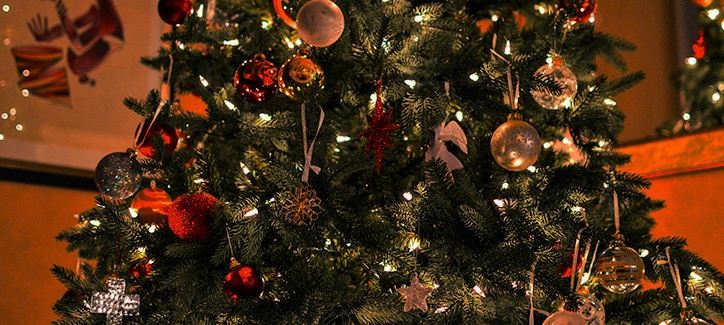
The busiest time of the year has arrived! As we dive in head first into the holiday rush with shopping, cooking, and transforming our homes with festive decorations, we sometimes fail to take into consideration the most common home emergencies that tend to occur during the holiday season. Even during the most wonderful time of the year, accidents can happen that can lead to significant home damages, injuries, and even fatalities.
Enjoy the holidays safely this year by becoming knowledgeable of the top main causes of holiday emergencies and how to prevent them from occurring:
Kitchen
Whether you are the host of the holiday gatherings or attending someone’s home as a guest, the amount of time people spend cooking drastically increases during the holidays. According to the United States Fire Administration (USFA), incidence of fires caused by cooking, heating, and open flame all increase during the winter holiday period.
Tip: Even if you have a house full of guests or you have a holiday meal planned that requires multiple hours of cooking time, NEVER leave food cooking unattended.
- Ensure that your cooking station is well organized and neat to avoid spills or something getting knocked over into an open flame.
- Keep pets and small children out of the kitchen when cooking.
- If you are the host, assign an additional member of the gathering to be a second eye on the cooking station.
Candles
The lighting of candles during the holidays is a common symbolic element in many different holiday traditions. They represent various beliefs and religions, as well as provide seasonal aromas that add to that holiday feel in the air. However, it is also one of the most common ways to start a house fire during the holiday season. As the holidays are known for its heightened craze, people tend to forget about lit candles in their home and as a result, create a very dangerous situation for their home structure and loved ones.
Tip: Especially during the holidays, NEVER leave a candle lit in a room unattended.
- Keep candles away from flammable holiday decorations including garland, Christmas trees, wreathes, lights, hanging fixtures, etc.
- To take extra precautions, invest in battery powered candles during the holiday season. This will eliminate any risks of candle initiated home fires.
Christmas Trees/Lights
According to the Western Reserve Fire Museum and Education Center, each year Christmas trees start nearly 250 house fires causing an average of 16 deaths and $13.1 million in property damage. Christmas tree fires can have a number of varying origins. They can be instigated by an overloaded circuit or extension cord, an electrical malfunction, or an overheated lightbulb. In any of these circumstantial situations, these fires can be extremely dangerous, as one in every 15 fires reported that began with a tree resulted in fatalities.
Tip: First and foremost, NEVER leave your lights on overnight or when you are not home.
- Ensure that the electrical socket or extension cord used to light the tree up is not overloaded.
- Be aware of how you place decorations on your tree. Ensure that the lights are not overlapping other decorative elements that may be flammable.
- Keep candles away from your tree, as well as other flammable items.
- Dispose of your tree as soon as the Holidays are over.
Preventing a House Fire
During the holiday season, there are various other home emergencies that could occur such as slips, falls, choking hazards, etc. However, the most common and most preventable emergency happens to be holiday house fires. As previously mentioned, there are many different elements that could cause a fire to start within your home during this particular season.
While there are many ways to help reduce the risk of a house fire starting, there is no guarantee that the risk is completely eliminated. That is why it is important to prevent a fire in your home from spreading by making sure you have smoke and carbon monoxide detectors that are properly working.
Tip: Install smoke alarms and carbon monoxide detectors on every level of your home.
- Smoke alarms should especially be installed inside and outside bedrooms and sleeping areas.
- Use interconnected smoke alarms. Test them at least once a month.
- Replace all smoke alarms within your home every 10 years.
- BEFORE the holiday season starts, replace all batteries within each of your smoke and carbon monoxide detectors.
Your best safeguard against emergency is a preparedness plan. When disaster strikes, there is support to help you restore your home and your life in the aftermath.




